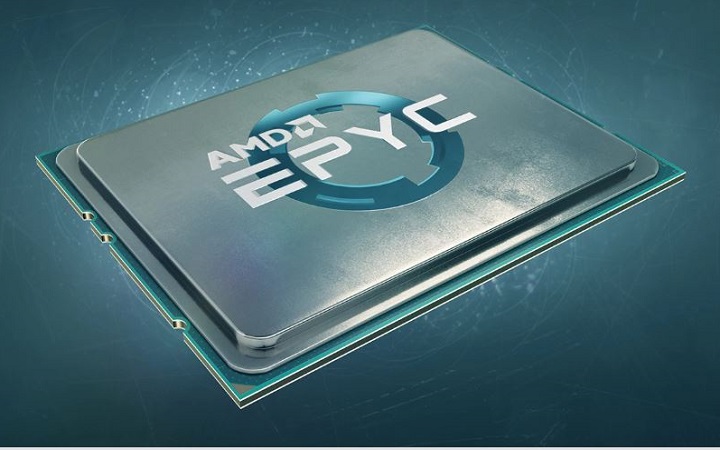Hygon Dhyana SoC Supported in Linux Kernel 5.20
The latest commits to Linux kernel version 5.20 point to out-of-the-box support for the Hygon Dhyana system on a chip (SoC). Hygon is a joint venture between AMD and Chinese company Tianjin Haiguang Advanced Technology Investment Co., Ltd (THATIC), which was formed to create processors for the Chinese server market using AMD IP soon after the U.S. government banned the sale of Intel Xeon processors to China.
AMD formed the joint venture in 2016 before the first Zen-based chip was out. AMD was losing money rapidly, and selling its CPU IP to a Chinese company was a quick way to gain some revenue. Selling its GPU IP to Intel was another similar move.
The first SoC created by this joint venture and using the name Dhyana entered production earlier this summer. AMD has said that it doesn’t actually sell the final designs of its chips to the Chinese partner, but instead allows them to build their own variations based off the Zen architecture. However, from previous Linux kernel commits we know that Dhyana is so similar to AMD’s EPYC that the main code change required was changing the vendor ID.
In the latest kernel version, there seem to be only a few hundred lines of code that are different between Dhyana and AMD’s 1st generation EPYC server CPU. These changes include primarily identifiers for Hygon and its Dhyana SoC. These identifiers are then linked to the code for AMD’s own Zen processors, which further confirms that Hygon’s processors are basically repackaged AMD processors.
Hygon’s Dhyana is now expected to work out of the box with Linux distributions, such as Ubuntu 19.04, Fedora 30 and other distros that come with Linux kernel version 5.20, or distros that have backported the 5.20 kernel.
Get Tom's Hardware's best news and in-depth reviews, straight to your inbox.
Lucian Armasu is a Contributing Writer for Tom's Hardware US. He covers software news and the issues surrounding privacy and security.
-
randomstuff7970 These clones transfer American IP to China. History below.Reply
• In August 2015, the U.S. barred Intel (and implicitly AMD) from selling high-end server chips to a few (but not all) Chinese customers due to national security concerns. Intel complied. https://www.pcworld.com/article/2908692/us-blocks-intel-from-selling-xeon-chips-to-chinese-supercomputer-projects.html
• A few months later, China went to Lisa Su to get basically the same chip from AMD via a complicated joint venture that complied with the letter of the law -- because the chip would not be sold by a U.S. company but would rather be sold by the Chinese JV (so no need to ask the U.S. for permission to export it to Chinese customers). https://www.forbes.com/sites/patrickmoorhead/2016/04/21/amd-forms-china-x86-server-soc-jv-and-gets-293-million-to-start/#33633ca79df8
• A month ago, China started producing these Epyc server chip clones. As this article explains, they have a different name but are EXACTLY Epyc chips. https://www.tomshardware.com/news/china-zen-x86-processor-dryhana
• The U.S. government is due to publish a report on Chinese theft of U.S. semiconductor IP that could name and shame AMD. "ASSESSMENT OF THE U.S. INTEGRATED CIRCUIT DESIGN AND MANUFACTURING INDUSTRY" https://www.reddit.com/r/AMD_Stock/comments/87z5h9/ustr_china_jv_scheme_exposed/
• Based on the timing, it's clear the ONLY reason this JV was set up was to circumvent the government's ban.
• These chips will be in the hands of those very customers the U.S. government said couldn't have them.
• They will be taking market share from Epyc and only paying AMD a tiny royalty, instead of the large margins it would have made on Epyc. -
pincher.lala.2014 Reply21431735 said:These clones transfer American IP to China. History below.
• In August 2015, the U.S. barred Intel (and implicitly AMD) from selling high-end server chips to a few (but not all) Chinese customers due to national security concerns. Intel complied. https://www.pcworld.com/article/2908692/us-blocks-intel-from-selling-xeon-chips-to-chinese-supercomputer-projects.html
• A few months later, China went to Lisa Su to get basically the same chip from AMD via a complicated joint venture that complied with the letter of the law -- because the chip would not be sold by a U.S. company but would rather be sold by the Chinese JV (so no need to ask the U.S. for permission to export it to Chinese customers). https://www.forbes.com/sites/patrickmoorhead/2016/04/21/amd-forms-china-x86-server-soc-jv-and-gets-293-million-to-start/#33633ca79df8
• A month ago, China started producing these Epyc server chip clones. As this article explains, they have a different name but are EXACTLY Epyc chips. https://www.tomshardware.com/news/china-zen-x86-processor-dryhana
• The U.S. government is due to publish a report on Chinese theft of U.S. semiconductor IP that could name and shame AMD. "ASSESSMENT OF THE U.S. INTEGRATED CIRCUIT DESIGN AND MANUFACTURING INDUSTRY" https://www.reddit.com/r/AMD_Stock/comments/87z5h9/ustr_china_jv_scheme_exposed/
• Based on the timing, it's clear the ONLY reason this JV was set up was to circumvent the government's ban.
• These chips will be in the hands of those very customers the U.S. government said couldn't have them.
• They will be taking market share from Epyc and only paying AMD a tiny royalty, instead of the large margins it would have made on Epyc.
nice work, ty.. very clearifying
